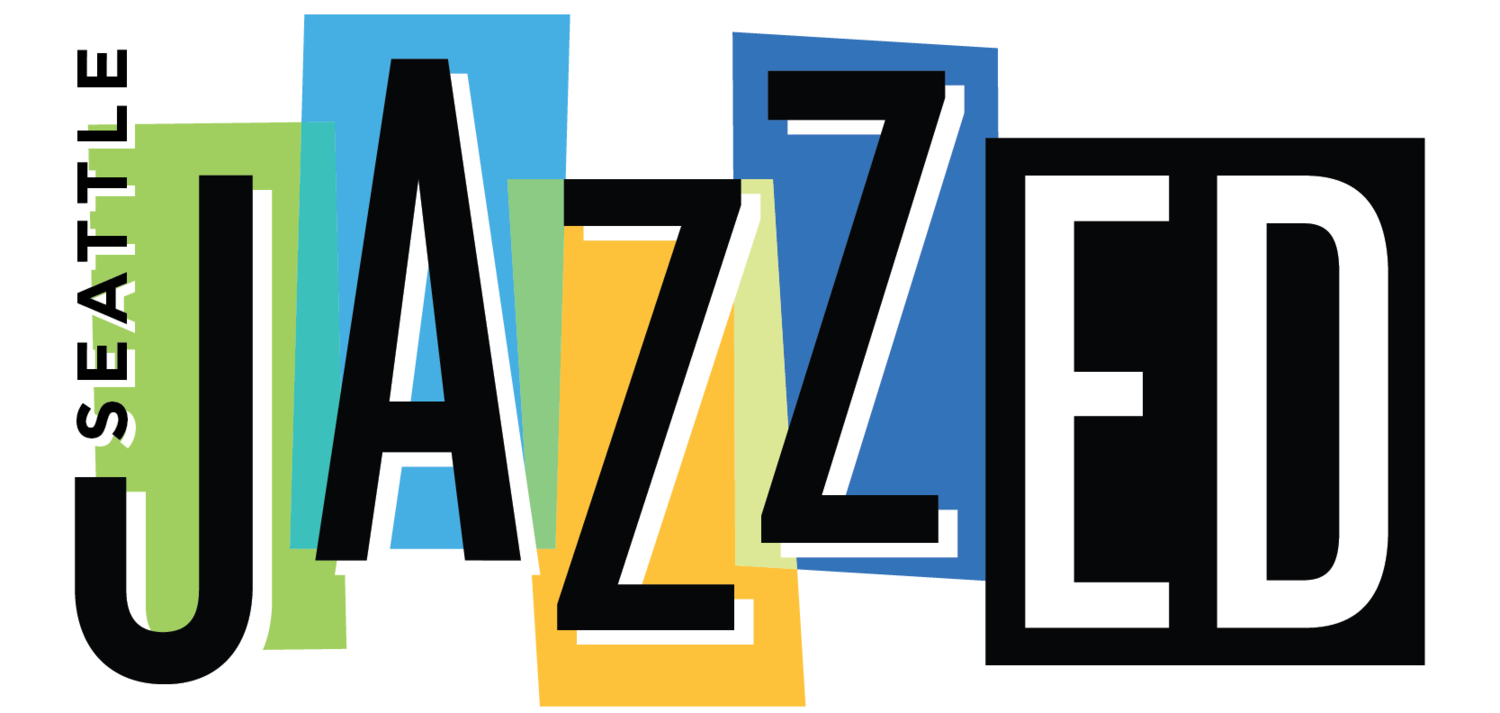Celebrating Student Expression at Seattle JazzED
/This is part three of a four-part series where we dive into the sections of our mission statement.
Read part one and two.
At Seattle JazzED, part of our mission is to celebrate the artistic voices of our students. We foster a supportive and nurturing environment that encourages musicians to discover their individual style, experiment with improvisation, and fearlessly express themselves through their instruments. By honoring and amplifying their voices, we not only cultivate exceptional musicians but also instill confidence and self-assurance that will transcend the music room and positively impact their lives.
But what does that look like here in Seattle JazzED? Through an improvisational lens, we're breaking down how we embrace different approaches to celebrating student expression within and outside the classroom.
Embracing Creative Freedom
Improvisation is a defining hallmark of jazz music. The way that improvisation has been taught in schools for more than 75 years is through a parrot-style, “repeat after me” method, insinuating that there are “right” notes.
At JazzED, we center play, exploration, and discovery to promote bravery over perfection.
Improvisation is not reserved for those only with extensive musical knowledge. Rather, it’s a natural extension of being human. By instilling this belief early on, we can decenter the idea that there are strict requirements to playing music and remove the pressure of perfection. Students often don’t realize they’re improvising, making it an organic and less intimidating process for them to express themselves freely.
Dynamic Learning in the Classroom
While instrumental proficiency is a lifelong pursuit, improvisation can and should happen at all stages of learning. In other words, it’s not just about the grind of learning an instrument but the groove in responding. JazzED students improvise on their first day on an instrument!
For example, the way students “phrase a melody” becomes a form of expression and improvisation. Do they want to add vibrato to a note? If yes, why? If not, why? This decision and other decisions they make on how to compose a walking bass line or voice a piano chord are all forms of expression.
But making these choices can be tricky.
While we honor the rich history of jazz as a crucial element in our curriculum, we also understand the curiosity and creativity of the young minds we teach. Our approach involves dynamic learning, exploring, and decision-making — an evolving process that respects tradition while embracing what’s popular now.
Facilitating Student Expression
Each classroom is an ecosystem of the people in the room. Seattle JazzED’s Education Director, Kelly Clingan, carefully decides which teachers are going to be in the room and how they will all work together to support the students in the classroom.
Incorporating improvisation and expression is a consistent element across all classes and age ranges, from JazzSprouts to our exploration ensembles. This emphasis is intentional, promoting the early and frequent occurrence of improvisation and expression for students. Our educators are facilitators of individual expression while the songs they learn are a medium for exploration, allowing students to guide their own musical preferences.
Much like how children naturally come into language and conversation, we want young musicians at JazzED to be curious and playful with their instruments while learning techniques and tools that help them make music. We encourage improvising even with beginners because of the confidence it builds in our students.
“Our teachers share time honored aural traditions of Black-American music like call and response and the blues to give students a platform to create within the structure of a musical collective. Through the Connections and Exploration programs, improvisations become more articulate and responsive as teaching artists gives valuable insight into their own creative processes.” - BJ Montoya, Curriculum Manager and Lead Teacher
BJ Montoya teaching Connections at our South Lake Union Office. Photo by Jocelyn R.C.
A Celebration of Expression
We extend the celebration beyond the classroom by providing opportunities for students to showcase their talents, involving families and friends in the celebration of their achievements. These collaborative performances and events become showcases of individual expression, reflecting the diversity and richness of our community.
At the end of our 2023 fall quarter, our Jazz Lab: Gigging and Mentoring students hosted a jam session for the community. Our lead educators in the room, Nate Omdal and Anna Seymour, facilitated and encouraged students to improvise over songs like ‘Satin Doll’ and ‘Take the ‘A’ Train’. In a room of musicians from fifth to twelfth grade, the wide range of abilities sonically meshed, creating a performance that our students, families, and staff can feel proud of.
Want to join us in celebrating student expression?
Consider joining us at our next community event or following us on social media to stay updated with our students’ accomplishments and performances.









